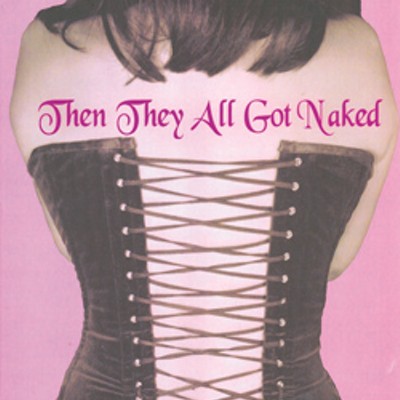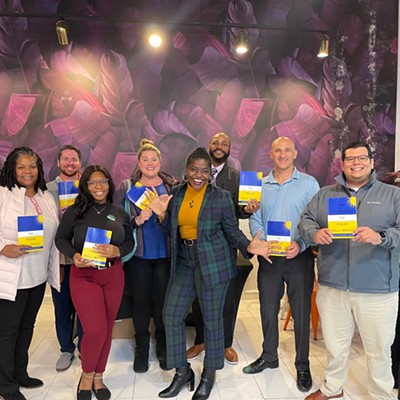IN 2007, poet Natasha Trethewey won the Pulitzer Prize in poetry for her third volume of work, Native Guard: Poems. Both personal and historical, Trethewey’s poems are anchored in the little-known story of the Louisiana Native Guards, “the first officially sanctioned regiment of black soldiers in the Union Army,” serving as prison guards on Ship Island on the Mississippi gulf coast, keeping watch over captured Confederate soldiers.
Nearly 100 years later, Trethewey’s parents, a white man and a black woman, were forced to travel to Ohio to be married, due to Mississippi laws prohibiting miscegenation. Trethewey’s look at the Native Guards is infused with observations on her life growing up on the Gulf Coast and in north Georgia, and reflections on her relationship with her mother’s memory twenty years after her death.
Trethewey, a graduate of the University of Georgia and Hollins University, is Professor of English and the Phyllis Wheatley Distinguished Professor of Poetry at Emory University. She’ll be reading at Savannah State University this Tuesday to kick off a month-long poetry festival at the college. Last week by telephone, she offered these comments on her life and her work.
In Native Guard, you explore three interconnected themes—the life and death of your mother; the experiences of African Americans in Mississippi during the Civil War; and your own experiences of race and being Southern. When and how did the poems in these sections come to you? How did the book come together?
Natasha Trethewey: I think that the book as a whole is about historical memory. Each of those sections deals with historical memory in different ways--the ways we remember and create monuments that help us remember, or the ways we erase things from our culture and our physical landscape when we don’t erect monuments.
I started thinking about the book when I went out to Ship Island after not having gone back since I was a child. When I went to explore the history of the Native Guard it was after I had found out about them. I was telling my grandmother about an assignment I was going to give my students...and there was a woman who was eavesdropping. She came over and said, “There’s something else you need to know about Ship Island. Another story that the park ranger won’t tell you when you take the tour.”
The only historical marker on the island was the names of the Confederate soldiers who were there. I was struck by those kinds of histories that we don’t often know because the marker doesn’t point us in that direction.
As for the book’s themes, I knew I was interested in historical memory and historical erasure. At the same time I was approaching the 20th anniversary of my mother’s death. I was writing these elegiac poems and putting them away in the drawer. At that point I didn’t see that they would be part of the same book. Like the Louisiana Native Guards, there was no monument to inscribe onto the landscape my mother, that she was here.
The title comes quite literally from the name of the regiment, but figuratively it’s about being a native guardian to these historical memories, a native guardian of Mississippi that will tell a fuller version of this story, tell the parts left out and create a living monument to the lesser known parts.
Our country is in a conversation about race that is unprecedented. Your mixed racial background is a strong theme in your work. Comment on your thoughts about race in America in the 21st century, racial identity, and how those themes are playing out in your writing.
Natasha Trethewey: It can be summed up in the statement “We’ve come a long way, we’ve got a long way to go,” you know? I like to think that all Americans have a racialized experience. It is not simply that black people have a racialized experience, but certainly our blackness reminds people. Even when you’re not talking about race as a black person, people assume that you are because you’re a black person.
I’m interested that if I’m writing about history, it’s assumed that I’m writing about race rather than history. An experience about race is an integral to our history. Am I writing about race when I write that in 1965 my parents broke two laws when they got married, or am I writing about law in Mississippi? That is something that I’m not able to escape because of who I am. Nor is Barack Obama.
Your father Eric Trethewey is on the creative writing faculty at Hollins University, a prolific and highly regarded poet himself. Have you collaborated with him? How has that relationship evolved during your career?
Natasha Trethewey: He has been proud of me from day one. It didn’t take the Pulitzer to make him proud of me. He was my first teacher. When I went to Hollins I was in his workshop, he was literally my first professor in a creative writing classroom, beyond what you learn from a parent who’s a writer. On long car trips he would tell me to write a poem about the trip if I was bored.
My father and I give a lot of readings together. Many years ago, when I was in Kentucky to give a reading, he was back at his old alma mater, I was supposed to give a reading with another poet who got sick at the last minute and my father filled in. We decided that instead of reading separately, we stood there together at the podium and we read poems back and forth that sort of illustrated a life, our relationship with my mother, our relationship with each other, and our sense of loss now that she is dead.
Later this month you will be speaking at Savannah State University, a historically black college/university (HBCU) in Savannah. I’ve been told that you have a strong commitment to the survival of HBCU’s. How did your passion for them evolve, especially in light of your own educational experience at majority-white colleges and universities?
Natasha Trethewey: My parents met at an HBCU, Kentucky State University. My white father was a student at Kentucky State in the sixties. I have a commitment to the education of underrepresented groups. I did go to a women’s college, Hollins, and I would say the same thing if approached by a women’s college. I have a commitment to education, particularly in light of the difficult history of blacks in America in education. We live in a time where more and more schools are becoming resegregated because of neighborhoods. There’s not an equality of education in our country.
What do you see as the future of poetry?
Natasha Trethewey: The future of poetry is bright. With recent projects like Robert Pinksy’s Favorite Poem Project; Poetry Out Loud, where students are reciting poems; Ted Kooser’s American Life in Poetry. More and more people are coming to poetry feeling less intimidated than people have in the past. The explosion of café culture and open mikes in restaurants and bars and cafes makes people gravitate toward poetry. 
Natasha Trethewey reads at Savannah State University, Tuesday, March 25, 7:00 p.m. Torian Auditorium, Jordan Hall. FREE admission, but a $5 donation is suggested.


























